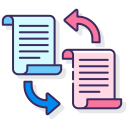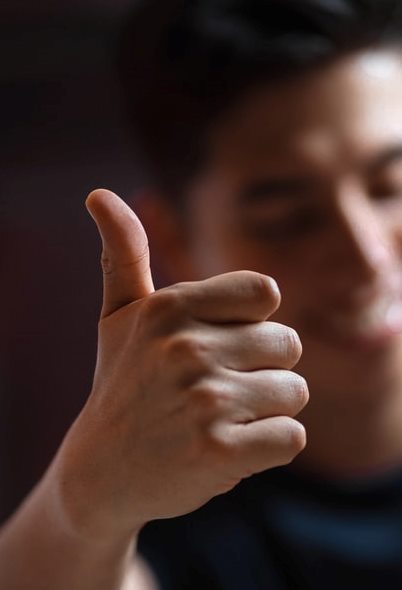 In the realm of academic and scholarly writing, a lit review is a pivotal chapter, considered the backbone of a research paper or thesis. It serves as a comprehensive overview of existing research and literature relevant to the topic at hand. However, ensuring that this critical section is free from plagiarism can be a challenging endeavor. This is where we step in to provide invaluable assistance. At the heart of our services lies a commitment to upholding academic integrity and excellence. We recognize that crafting an original literature review is not always easy, as it involves synthesizing a multitude of sources while avoiding any form of plagiarism. That's why we are proud to offer the best Chapter 2 plagiarism removal help. Our team of experienced editors and plagiarism experts is well-versed in the intricacies of academic writing and is dedicated to helping you create a literature review that is both original and well-referenced. We understand that the consequences of plagiarism in academic work can be severe, ranging from a tarnished reputation to potential disciplinary actions. Thus, we work diligently to ensure that your literature review is not only plagiarism-free but also a testament to your research skills and dedication to academic integrity. We will shed light on the importance of a plagiarism-free literature review, the challenges students and researchers face, and how our services can be the ultimate solution to ensure the quality and originality of your Chapter 2. Read on to discover the best practices, guidance, and support available to help you excel in your academic pursuits. We can help to edit plagiaries in a literature review.
In the realm of academic and scholarly writing, a lit review is a pivotal chapter, considered the backbone of a research paper or thesis. It serves as a comprehensive overview of existing research and literature relevant to the topic at hand. However, ensuring that this critical section is free from plagiarism can be a challenging endeavor. This is where we step in to provide invaluable assistance. At the heart of our services lies a commitment to upholding academic integrity and excellence. We recognize that crafting an original literature review is not always easy, as it involves synthesizing a multitude of sources while avoiding any form of plagiarism. That's why we are proud to offer the best Chapter 2 plagiarism removal help. Our team of experienced editors and plagiarism experts is well-versed in the intricacies of academic writing and is dedicated to helping you create a literature review that is both original and well-referenced. We understand that the consequences of plagiarism in academic work can be severe, ranging from a tarnished reputation to potential disciplinary actions. Thus, we work diligently to ensure that your literature review is not only plagiarism-free but also a testament to your research skills and dedication to academic integrity. We will shed light on the importance of a plagiarism-free literature review, the challenges students and researchers face, and how our services can be the ultimate solution to ensure the quality and originality of your Chapter 2. Read on to discover the best practices, guidance, and support available to help you excel in your academic pursuits. We can help to edit plagiaries in a literature review.
The importance of a 0% plagiarized project chapter two
A 0% plagiarized project, particularly in chapter two, holds paramount significance for various reasons. It reflects the author's integrity and commitment to academic honesty. Plagiarism undermines trust and credibility, which are vital in the academic and professional realms. Originality in chapter two demonstrates a genuine effort to contribute to existing knowledge and engage in meaningful research. Moreover, an entirely plagiarism-free chapter two is essential for the advancement of knowledge. It ensures that the ideas, insights, and conclusions presented are unique and authentic, thus enriching the scholarly discourse. This originality allows for the development of fresh perspectives and innovative solutions to complex problems. Additionally, a 0% plagiarized chapter two upholds the principles of intellectual property rights and copyright, respecting the work of others while safeguarding one's own. This ethical stance fosters a culture of respect for intellectual creations and encourages responsible research practices. Furthermore, academically, a plagiarism-free chapter two is vital for academic success and progression. It ensures that the work is evaluated based on its merit and originality, leading to fair and unbiased assessment. Relevantly, a 0% plagiarized project is crucial for maintaining academic integrity, advancing knowledge, respecting intellectual property rights, and achieving academic success. It underlines the importance of authenticity, honesty, and ethical conduct in research and scholarly endeavors.
The benefits of seeking our expert help to correct plagiarism in a lit review
Seeking our quality literature review plagiarism correction services comes with numerous merits. We help to ensure the integrity and originality of your work. Plagiarism can damage your academic or professional reputation, which is why we offer our expert assistance to ensure that you avoid such pitfalls. Also, our experts possess a deep understanding of citation styles (e.g., APA, MLA, Chicago) and can help you accurately reference your sources. Proper citation not only prevents plagiarism but also enhances the credibility of your literature review. Relevantly, we can assist in rephrasing or paraphrasing borrowed content effectively. This not only eliminates plagiarism but also improves the clarity and coherence of your writing. Moreover, our professionals can conduct thorough plagiarism checks using advanced plagiarism detection tools, identifying any unintentional similarities that might have been missed. This ensures a comprehensive and accurate correction process. In a nutshell, our expert assistance saves time and reduces the stress associated with plagiarism concerns. You can focus on refining your arguments and analysis, confident that your literature review is free from ethical and academic issues. Seeking our expert help to edit plagiarism in chapter two guarantees originality, enhances citation accuracy, improves writing quality, and provides peace of mind, ultimately contributing to the success of your academic or professional endeavors.
 Plagiarism, whether intentional or inadvertent, is a great offense that can jeopardize one's academic and professional reputation. Therefore, the emergence of our correction services is a welcome development that provides a lifeline to researchers, scholars, and students striving for excellence. Through our guidance, individuals gain access to a valuable resource that not only identifies instances of unintentional plagiarism but we also offer guidance on how to rectify them. Our support is particularly crucial for those new to the rigors of academic writing, as it ensures that their work adheres to the requisite standards of originality and citation. Furthermore, we are not just about correcting errors but also about educating writers. We serve as a bridge to understanding the intricacies of proper citation, referencing, and paraphrasing, which are essential skills for anyone engaged in scholarly pursuits. We offer an invaluable means of upholding academic integrity and enhancing the quality of research. We empower individuals to produce original, well-crafted work that contributes meaningfully to their respective fields. As we continue to advance in the digital age, we stand as a beacon of guidance and support, ensuring that the pursuit of knowledge remains untainted by the shadow of plagiarism.
Plagiarism, whether intentional or inadvertent, is a great offense that can jeopardize one's academic and professional reputation. Therefore, the emergence of our correction services is a welcome development that provides a lifeline to researchers, scholars, and students striving for excellence. Through our guidance, individuals gain access to a valuable resource that not only identifies instances of unintentional plagiarism but we also offer guidance on how to rectify them. Our support is particularly crucial for those new to the rigors of academic writing, as it ensures that their work adheres to the requisite standards of originality and citation. Furthermore, we are not just about correcting errors but also about educating writers. We serve as a bridge to understanding the intricacies of proper citation, referencing, and paraphrasing, which are essential skills for anyone engaged in scholarly pursuits. We offer an invaluable means of upholding academic integrity and enhancing the quality of research. We empower individuals to produce original, well-crafted work that contributes meaningfully to their respective fields. As we continue to advance in the digital age, we stand as a beacon of guidance and support, ensuring that the pursuit of knowledge remains untainted by the shadow of plagiarism.
How to Correct a Plagiarized Lit Review | Originality Check
 In academics, a lit review stands as a pivotal element in the construction of knowledge. It serves as the foundation upon which a research study is built, providing the necessary context and framework for the investigation. However, the integrity of this cornerstone can be severely compromised when plagiarism creeps in, casting a shadow of doubt over the authenticity of the entire academic endeavor. Plagiarism in a literature review is a grave offense, as it not only undermines the credibility of the researcher but also erodes the very essence of scholarly pursuit, the pursuit of knowledge with integrity. This issue has gained increasing attention in recent years, thanks to the growing availability of digital resources and the ease of copying and pasting content from various sources. As a result, both novice and seasoned researchers find themselves grappling with the complex task of ensuring the originality of their literature reviews. We can offer reliable help with correcting plagiarism in a lit review. In this era of heightened academic scrutiny, addressing and rectifying plagiarism in a literature review is not just a matter of academic ethics, but a necessity. It requires a combination of vigilance, research skills, and the right tools to detect and correct instances of plagiarism effectively. This is where our quality chapter 2 plagiarism editing guidance comes into play. We offer invaluable insights and strategies to navigate the intricate terrain of plagiarism detection and correction, empowering researchers to maintain the highest standards of originality and integrity in their academic work. As we explore the art of rectifying plagiarism in the realm of literature reviews, we ensure that our scholarly endeavors shine brightly with authenticity and rigor.
In academics, a lit review stands as a pivotal element in the construction of knowledge. It serves as the foundation upon which a research study is built, providing the necessary context and framework for the investigation. However, the integrity of this cornerstone can be severely compromised when plagiarism creeps in, casting a shadow of doubt over the authenticity of the entire academic endeavor. Plagiarism in a literature review is a grave offense, as it not only undermines the credibility of the researcher but also erodes the very essence of scholarly pursuit, the pursuit of knowledge with integrity. This issue has gained increasing attention in recent years, thanks to the growing availability of digital resources and the ease of copying and pasting content from various sources. As a result, both novice and seasoned researchers find themselves grappling with the complex task of ensuring the originality of their literature reviews. We can offer reliable help with correcting plagiarism in a lit review. In this era of heightened academic scrutiny, addressing and rectifying plagiarism in a literature review is not just a matter of academic ethics, but a necessity. It requires a combination of vigilance, research skills, and the right tools to detect and correct instances of plagiarism effectively. This is where our quality chapter 2 plagiarism editing guidance comes into play. We offer invaluable insights and strategies to navigate the intricate terrain of plagiarism detection and correction, empowering researchers to maintain the highest standards of originality and integrity in their academic work. As we explore the art of rectifying plagiarism in the realm of literature reviews, we ensure that our scholarly endeavors shine brightly with authenticity and rigor.
The consequences of plagiarism in academic writing
Plagiarism in academic writing carries significant consequences, both ethical and academic. Here are the key repercussions:
- Academic Penalties: Plagiarism can lead to severe academic consequences, including failing the assignment or course. In some cases, students may even face expulsion from their educational institution.
- Damage to Reputation: Plagiarism tarnishes a student's reputation as an honest and trustworthy scholar. This can affect future academic and professional opportunities.
- Legal Consequences: In some cases, plagiarism may result in legal actions, especially when copyrighted materials are used without proper attribution or permission. This can lead to lawsuits and fines.
- Diminished Learning: Plagiarism deprives students of the opportunity to learn and develop critical research and writing skills. It hinders their personal and academic growth.
- Loss of Credibility: Academics, researchers, and writers who engage in plagiarism risk losing credibility in their respective fields. Their work may no longer be trusted or respected by peers and colleagues.
- Professional Ramifications: Beyond academia, professionals who plagiarize may face career-ending consequences, including damage to their reputation and job loss.
How to rectify a plagiarized project chapter 2
Rectifying a plagiarized project Chapter 2 involves several steps to ensure academic integrity and originality. This is how to correct a plagiarized lit review:
- Identify Plagiarized Sections: Begin by using plagiarism detection tools and manually comparing your Chapter 2 with potential sources to pinpoint plagiarized sections.
- Understand the Plagiarism: Determine whether the plagiarism was intentional or accidental. This will help you address the issue effectively.
- Replace Plagiarized Content: Rewrite or paraphrase the plagiarized sections while maintaining the same concepts and ideas in your own words. Be sure to cite the original source properly if you are incorporating someone else's ideas.
- Cite Sources Correctly: Review your entire Chapter 2 and ensure that all sources are cited appropriately, following the required citation style (e.g., APA, MLA, Chicago).
- Check References: Verify that your reference list corresponds to the sources you cited within the chapter. Ensure accuracy and consistency.
- Use Plagiarism Checker: After making revisions, run your chapter through a plagiarism checker again to ensure it's now free from plagiarism.
- Document Your Revisions: Keep a record of the changes you made to demonstrate your commitment to rectifying the plagiarism issue.
- Learn from the Mistake: Understand the consequences of plagiarism and commit to ethical research and writing practices in the future.
 Addressing a plagiarized lit review through an originality check is not only a matter of academic integrity but also a crucial step in ensuring the credibility and authenticity of research. Plagiarism undermines the foundations of scholarly work, eroding trust within the academic community and hindering the progress of knowledge. To correct a plagiarized chapter two, one must adopt a systematic approach that includes thorough originality checks, proper citation, and, most importantly, a commitment to understanding and respecting the intellectual property of others. The use of plagiarism detection tools can be instrumental in identifying and rectifying instances of plagiarism, but they should be complemented with a deeper understanding of proper citation practices and paraphrasing techniques. Moreover, institutions and academic advisors play a pivotal role in guiding and educating students and researchers about the ethical considerations of research and writing. By fostering a culture of academic integrity, institutions can contribute to the prevention of plagiarism and the development of responsible scholars. Ultimately, the correction of a plagiarized chapter 2 not only restores the integrity of one's work but also promotes a culture of honesty and originality within the academic community. As researchers, it is our collective responsibility to ensure that our contributions to knowledge are built on a foundation of trust, transparency, and respect for the ideas and work of others.
Addressing a plagiarized lit review through an originality check is not only a matter of academic integrity but also a crucial step in ensuring the credibility and authenticity of research. Plagiarism undermines the foundations of scholarly work, eroding trust within the academic community and hindering the progress of knowledge. To correct a plagiarized chapter two, one must adopt a systematic approach that includes thorough originality checks, proper citation, and, most importantly, a commitment to understanding and respecting the intellectual property of others. The use of plagiarism detection tools can be instrumental in identifying and rectifying instances of plagiarism, but they should be complemented with a deeper understanding of proper citation practices and paraphrasing techniques. Moreover, institutions and academic advisors play a pivotal role in guiding and educating students and researchers about the ethical considerations of research and writing. By fostering a culture of academic integrity, institutions can contribute to the prevention of plagiarism and the development of responsible scholars. Ultimately, the correction of a plagiarized chapter 2 not only restores the integrity of one's work but also promotes a culture of honesty and originality within the academic community. As researchers, it is our collective responsibility to ensure that our contributions to knowledge are built on a foundation of trust, transparency, and respect for the ideas and work of others.











 In the pursuit of academic excellence, one of the paramount concerns that often looms over researchers and scholars is the specter of plagiarism. It is a scourge that can tarnish the reputation of even the most dedicated and diligent academics, compromising the integrity of their work and eroding the trust of their peers and mentors. Chapter Two of any scholarly document holds a pivotal role in shaping the foundation of research, making it crucial to maintain its authenticity and originality. Fortunately, there exists a beacon of hope for those who wish to ensure the removal of plagiarism from their academic endeavors. We have
In the pursuit of academic excellence, one of the paramount concerns that often looms over researchers and scholars is the specter of plagiarism. It is a scourge that can tarnish the reputation of even the most dedicated and diligent academics, compromising the integrity of their work and eroding the trust of their peers and mentors. Chapter Two of any scholarly document holds a pivotal role in shaping the foundation of research, making it crucial to maintain its authenticity and originality. Fortunately, there exists a beacon of hope for those who wish to ensure the removal of plagiarism from their academic endeavors. We have  The quest to remove plagiarism is not merely an exercise in upholding academic integrity; it is a fundamental commitment to quality enhancement. Plagiarism undermines the very essence of scholarship, eroding the trust and credibility upon which the academic community relies. As we navigate the intricate landscape of knowledge creation, it becomes imperative to champion originality and proper attribution. By diligently addressing plagiarism, we foster an environment conducive to intellectual growth and innovation. We encourage students and researchers to engage deeply with their subjects, think critically, and develop their unique perspectives. This process of original thought not only enriches the academic discourse but also equips individuals with the skills and mindset necessary for lifelong learning and success. Moreover, the removal of plagiarism reinforces the principles of fairness and equity in education. It ensures that credit is given where it is due, recognizing the efforts of authors, scholars, and researchers. In doing so, we uphold the principles of ethical conduct and respect for intellectual property rights. In this era of readily available information and digital connectivity, combating plagiarism requires continuous vigilance and the use of cutting-edge technology and pedagogical strategies. However, the rewards are immeasurable, a scholarly community driven by authenticity, creativity, and a shared commitment to quality enhancement. It is, therefore, our collective responsibility to embrace the challenge of eliminating plagiarism in this section and beyond, ultimately contributing to a brighter, more enlightened future in academia.
The quest to remove plagiarism is not merely an exercise in upholding academic integrity; it is a fundamental commitment to quality enhancement. Plagiarism undermines the very essence of scholarship, eroding the trust and credibility upon which the academic community relies. As we navigate the intricate landscape of knowledge creation, it becomes imperative to champion originality and proper attribution. By diligently addressing plagiarism, we foster an environment conducive to intellectual growth and innovation. We encourage students and researchers to engage deeply with their subjects, think critically, and develop their unique perspectives. This process of original thought not only enriches the academic discourse but also equips individuals with the skills and mindset necessary for lifelong learning and success. Moreover, the removal of plagiarism reinforces the principles of fairness and equity in education. It ensures that credit is given where it is due, recognizing the efforts of authors, scholars, and researchers. In doing so, we uphold the principles of ethical conduct and respect for intellectual property rights. In this era of readily available information and digital connectivity, combating plagiarism requires continuous vigilance and the use of cutting-edge technology and pedagogical strategies. However, the rewards are immeasurable, a scholarly community driven by authenticity, creativity, and a shared commitment to quality enhancement. It is, therefore, our collective responsibility to embrace the challenge of eliminating plagiarism in this section and beyond, ultimately contributing to a brighter, more enlightened future in academia. Does your work Require Rewriting Help?
Does your work Require Rewriting Help?